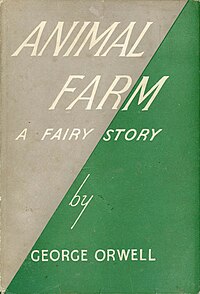
Photo from wikipedia
The term “priestcraft” is one that belongs to the past – and its particular past, moreover, is one with which most are unfamiliar. Yet the term and its meanings occupy… Click to show full abstract
The term “priestcraft” is one that belongs to the past – and its particular past, moreover, is one with which most are unfamiliar. Yet the term and its meanings occupy a place in history that remains curiously significant to the present, as the reader will discover in the contributions to this special issue. Between the late seventeenth and late nineteenth centuries, the charge of priestcraft could be expressed in theological, philosophical, and political terms as an attack on the religious, epistemological, and civil authority of clergymen. In essence, priestcraft was an accusation directed against priests, ministers, prelates, and popes, charging them with having systematically deceived common people through fraudulent, cunning, and exploitative means. That priests of all stripes concocted and peddled fraudulent knowledge was, by the 1690s, considered by many a fact. In the climate of post-Reformation Europe, decades of confessional conflict between Catholic and Protestant, Lutheran and Calvinist, Quaker and Anglican had destabilized sacerdotal authority and thrown the once-revered profession of the priesthood into disrepute. If priestly authority now plays a more marginal role within Western society, it is at least in part due to the prevalence and persistence of the charge of priestcraft in preceding centuries. Although sacerdotal authority has been replaced with scientific authority, the story of priestcraft raises questions about how recent accusations of scientific deceit – as expressed, for instance, in scepticism towards vaccinations and climate change – can potentially undermine the social authority of science and the scientist, and enable us to engage with its potential repercussions for society. In September 2016, the co-editors of this special issue organized a conference at the Centre for Research in the Arts, Social Sciences and Humanities (CRASSH) at the University of Cambridge, to which we invited scholars with a shared interest in the history of priestcraft. It would not have been possible without the logistical and financial support of CRASSH and the Lightfoot Fund, for which we express our deepest gratitude. But a conference demands an equally great commitment from its participants; for their generous contributions, we are most grateful to Justin Champion, Alix Chartrand, Katherine East, Mark Goldie, Ulrich Groetsch, Ariel Hessayon, Michael Hunter, Diego Lucci, Gaby Mahlberg, John Marshall, Chris Moses, Anthony Ossa-Richardson, Joanne Paul, Sascha Salatowsky, Winfried Schröder, Sujit Sivasundaram, Ruth Smith, Tim StuartButtle, and Ashley Walsh.
Journal Title: Intellectual History Review
Year Published: 2018
Link to full text (if available)
Share on Social Media: Sign Up to like & get
recommendations!